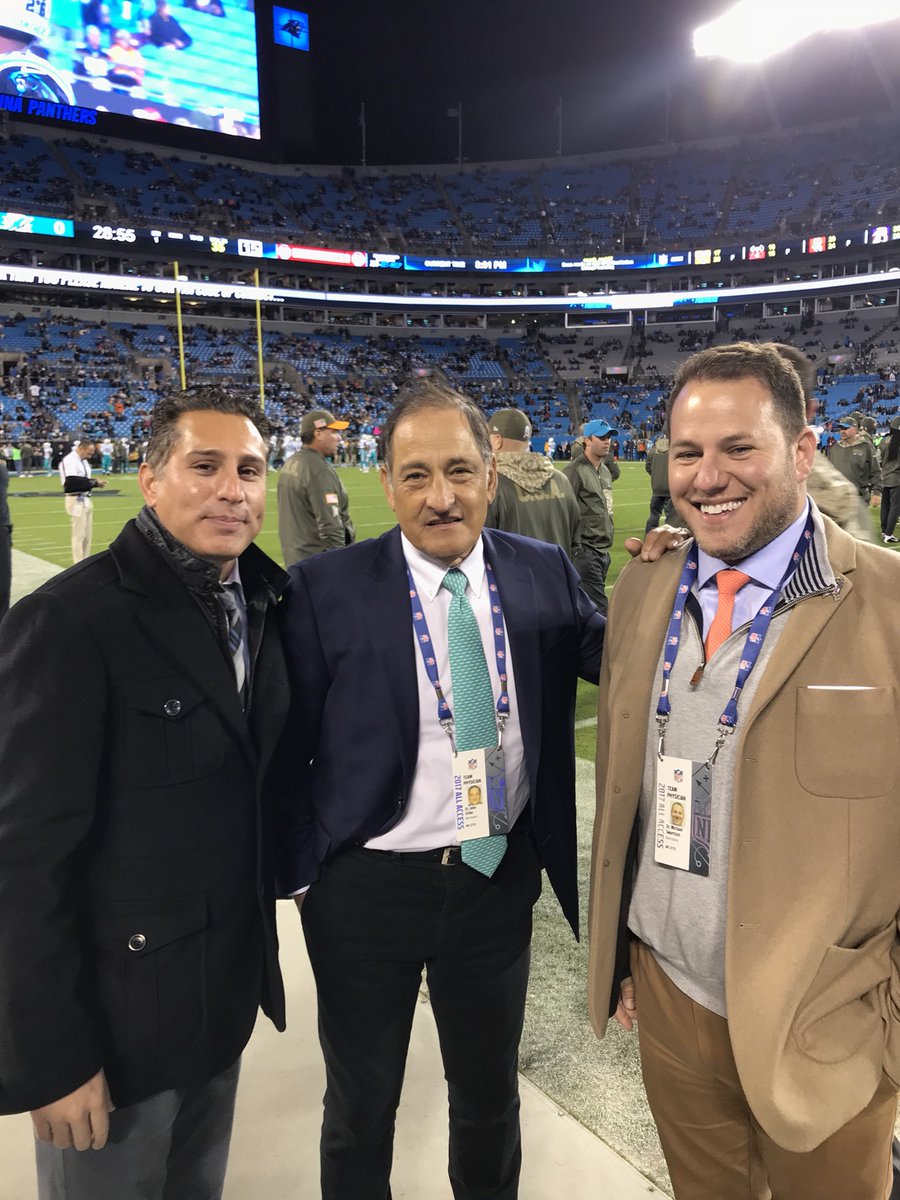April 7, 2020 by John Fernandez
Super Bowl LIV: Dolphins Team Physicians to Assist Staff for Chiefs, 49ers

When Super Bowl LIV gets underway this Sunday at Hard Rock Stadium in Miami Gardens, physicians with Miami Orthopedics & Sports Medicine Institute will be assisting trainers and doctors with both teams, the Kansas City Chiefs and San Francisco 49ers.

From left to right: Drs. Gautam Yagnik, John Uribe, and Michael Swartzon.
John Uribe, M.D., chief medical executive at the Institute, and head team physician for the Miami Dolphins, explains why he and fellow orthopedic physicians Michael Swartzon, M.D., and Gautam Yagnik, M.D., are needed for the big game.
“The visiting team physicians don’t have a Florida medical license, so they look to us as a courtesy to assist them when they come into town,” says Dr. Uribe. “They would offer the same courtesy if we were the visiting team. During the week that they’re here, they turn to us, as the team physicians of the Dolphins, for help with anything they need for medical care (even a referral to a dentist, or whatever it may be). Anything they need imaging related, we accommodate at one of our Baptist Health locations. It’s a team effort.”
As medical director overseeing the Miami Dolphins, Dr. Uribe’s oversees all physicians and athletic trainers. He coordinates the medical care for all players and coaches in the Miami Dolphins organization – during the season and off-season.
“We attend the NFL combine to perform physical exams on all draft eligible players. During off season, we do training and emergency action plans,” says Dr. Uribe.
Dr. Uribe answers some questions about football-related injuries.
Question: Research indicates that the most common football injuries are those to the knees, ankles, upper leg, shoulders and head. Do you agree? Any other injuries we should add to this list?
Dr. Uribe: Yes, I agree. I would say that the most common injuries are the following, in this order: 1. Foot & Ankle, 2. Knee, 3. Shoulder, 4. Head. The most common knee injuries in football include those to the anterior cruciate ligament (ACL) and menisci. The ACL is at risk because it’s one of the four main ligaments in the knee and is the primary stabilizer for rotational movement. Players frequently pivot and change direction, and that is when the ACL and/or meniscus comes into play. Tackling, blocking and getting clipped from behind also can result in an ACL tear, as well as the medial or lateral collateral ligament (MCL or LCL).
Question: What are some of the worst football-related injuries you’ve seen throughout your career?
Dr. Uribe: Knee dislocations and spine-related injuries are the most severe I’ve seen on the field. Even then, we’ve fixed knee dislocations and the players have gone back to playing at the professional level. Our knowledge and surgical techniques have expanded to where the vast majority of orthopedic injuries are no longer career-ending.
Question: What advice do you share with the Miami Dolphins players to avoid injury?
Dr. Uribe: Be honest with yourself and the medical staff. Injuries have some kind of precursor to them – pain – something you’re trying to work through. Take care of your body. Get plenty of rest, eat well and fuel your body, and don’t come dehydrated to practice. We emphasize proper training, technique and warm-up to prevent injury. This includes stretching before, during and after the game. A good program also should include strength and endurance training to help combat fatigue, which diminishes the split-second timing the muscles need to properly react and absorb shock.
Question: For those NFL teams not participating in the Super Bowl, what advice do you have for players in the off-season to recover from injury and/or to remain healthy?
Dr. Uribe: Maintain healthy habits even during off season. Your body needs to train year round. Work life balance is key. Football season is draining, both physically and mentally. It’s important to spend time with family and relax, but also pay close attention and continue fitness levels. Stay active, work on strength training and stretching, and always perform warm-ups and cool-downs before exercise. There are no shortcuts in sports. Use off season to try to get better in a positive way. Keep determination and practice.
top stories












There are no comments